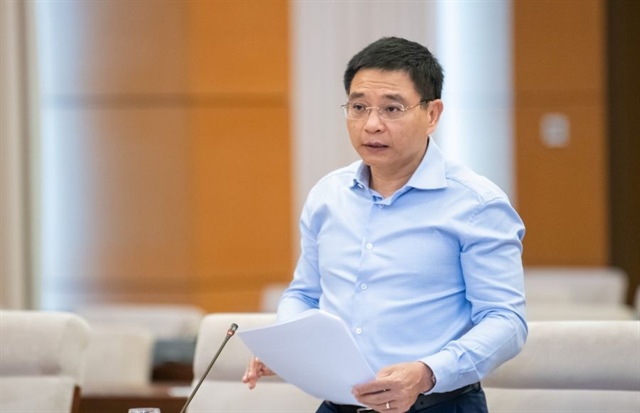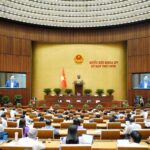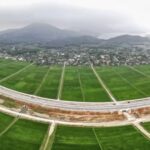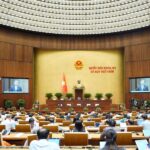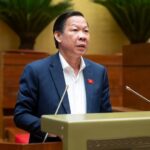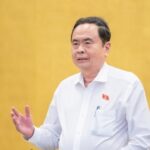On April 26th, the National Assembly’s Standing Committee discussed exemptions and reductions for land and land rent, as outlined in Clause 2, Article 157 of the 2024 Land Law. This included proposals for rent reductions for 2025.
The Minister of Finance, Mr. Nguyen Van Thang, presented the Government’s proposal, citing political, legal, and practical reasons for the policy. The Government requested that the Standing Committee authorize them to research and implement 11 specific policies related to land use and rent exemptions and reductions.
**Resettlement, agriculture, education, and healthcare benefit from rent exemptions and reductions**
The Government proposed exemptions and reductions for land use fees for families and individuals in flood-prone areas, as well as those in fishing villages and water-based communities who need to relocate according to approved plans and projects.
Rent exemptions were suggested for the headquarters of social policy banks, the Vietnam Development Bank, and non-profit financial funds operating within the law. The same applies to land used for building post-cultural society offices. Cooperatives and associations would also benefit from rent exemptions and reductions.
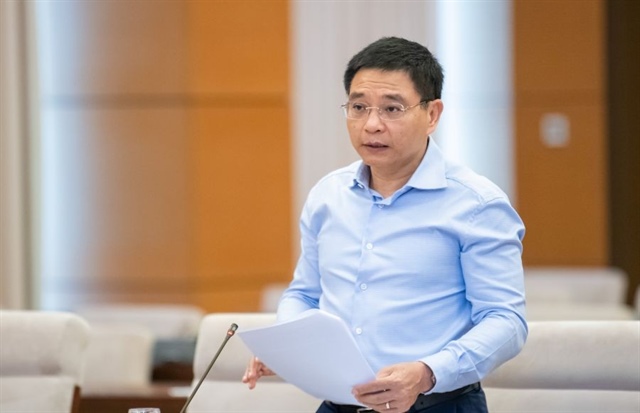 Minister of Finance, Nguyen Van Thang, presents the proposal. Source: QH |
Rent exemptions and reductions were also proposed for projects using land for education, vocational training, healthcare, cultural and sports activities, and environmental protection. These projects must meet certain conditions and criteria decided by the Prime Minister but do not fall under the rent exemption and reduction scheme outlined in Point a, Clause 1, Article 157 of the 2024 Land Law.
**Encouraging investment in agriculture and rural areas**
The Government suggested rent exemptions and reductions to encourage businesses to invest in agriculture and rural areas. Additionally, there would be rent exemptions and reductions for cases where land users are affected by natural disasters, fires, or other force majeure events.
Rent exemptions and reductions were also proposed for organizations, units, and businesses in the fields of agriculture, forestry, and aquatic product processing. These entities employ ethnic minorities and are based in provinces, centrally-run cities, and districts receiving support according to the Prime Minister’s decision on supporting organizations and units employing ethnic minorities in mountainous and particularly difficult areas.
**Rent exemptions and reductions for innovation and technology**
The Government proposed rent exemptions and reductions for projects constructing offices for foreign diplomatic, consular, and international organization representative agencies in Vietnam. These exemptions and reductions would be in line with international treaties to which Vietnam is a signatory and the principle of reciprocity. Other diplomatic cases were also considered.
Rent exemptions and reductions were suggested for production and business facilities employing people with disabilities, as outlined in Clause 1, Article 9 of Decree No. 28/2012, which provides details on implementing certain provisions of the Law on People with Disabilities.
**Ensuring social and economic stability**
The Government proposed exemptions and reductions for land use fees and rent to implement socio-economic policies, ensure macroeconomic stability, support production and business development, and guarantee social welfare. These measures aim to address practical issues in socio-economic governance.
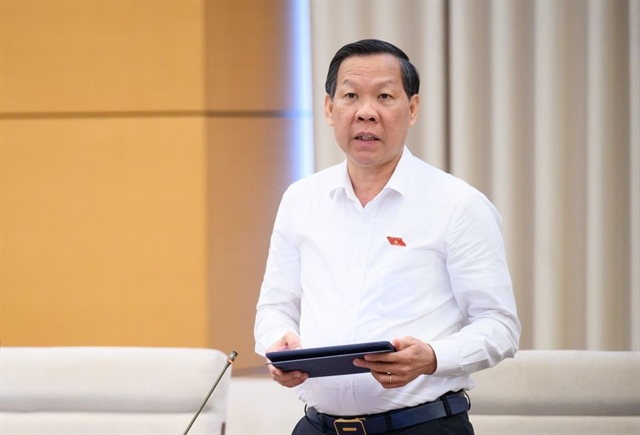 Chairman of the Committee for Economic and Financial Affairs, Phan Van Mai, presents the verification report. Source: QH |
Exemptions and reductions were also proposed for land used by institutes, innovation and development centers for digital technology, and projects producing key digital products, software, chips, and artificial intelligence. The same applies to National Digital Technology Centers, National Innovation Centers, and enterprises constructing scientific research facilities, provided they meet specific conditions.
Additionally, there were proposals for exemptions and reductions for land use fees and rent for cases where defense land is used for labor-producing economic activities and where non-defense land is rented by military units providing public services as public non-business units.
**Unanimous approval by the Standing Committee**
According to the verification report presented by Mr. Phan Van Mai, Chairman of the Committee for Economic and Financial Affairs, most members of the verification agency agreed with the Government’s proposal, despite some differing opinions.
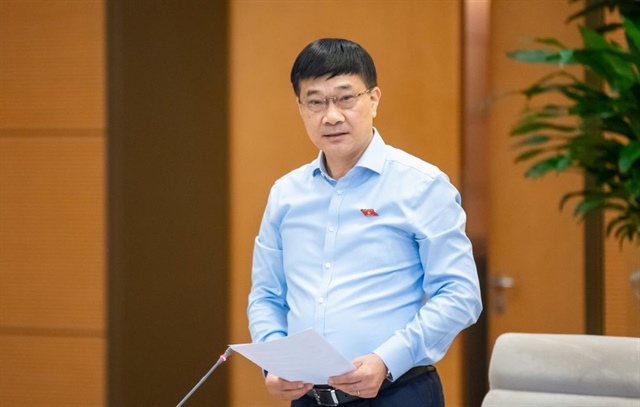
Vice-Chairman of the National Assembly, Vu Hong Thanh, concludes the meeting. Source: QH |
Concluding the session, Vice-Chairman of the National Assembly, Mr. Vu Hong Thanh, stated that the Standing Committee agreed in principle to authorize the Government to issue a decree regulating the cases mentioned in Clause 2, Article 157 of the 2024 Land Law.
The Government is responsible for ensuring that the decree’s formulation and issuance adhere to legal regulations and the Politburo’s Regulation No. 178 on controlling power and combating corruption and negativity in law-making activities.
Regarding the 2025 land rent reduction, the Standing Committee requested that the Government take responsibility for the accuracy of the information and data presented and the necessity of the rent reduction for that year. The Government should also ensure that the reduction aligns with budget collection tasks and the state budget balance within the approved budget deficit for 2025 decided by the National Assembly.
During the session, all Standing Committee members present voted to approve the draft resolution in principle, agreeing to the cases of land use fee and rent exemption and reduction outlined in Clause 2, Article 157 of the 2024 Land Law (including the 2025 land rent reduction).
CHAN LUAN
– 11:17 26/04/2025
A Proposal to Adjust Excise Tax Rates for Select Products and Commodities
The proposed revisions to the Special Consumption Tax Law offer a nuanced approach to taxation. Alongside exempting smaller air conditioners from special consumption tax, the draft law addresses nuanced scenarios, such as exported goods that have already incurred special consumption tax being returned from abroad. Additionally, it proposes adjustments to tax rates for pick-up trucks and a revised plan for implementing tax rates on alcoholic beverages from 2027 onwards.
“Proposed Amendments to the 2024 Land Law: Aligning with the Two-Tier Government”
The Ministry of Agriculture and Environment has urged local authorities to assess the implementation of the Land Law and propose solutions to address challenges and bottlenecks in a manner that aligns with the two-tier local governance system.
“Proposal to Merge Provincial-Level Administrative Units: A Comprehensive Reform for Efficient Governance”
The National Assembly will discuss a range of critical issues at its 9th session, including resolutions on mechanisms and policies to foster private economic development. Additionally, a pilot scheme will be proposed, offering special mechanisms and policies to invest in developing the railway system. A proposal for the merger of provincial-level administrative units is also on the agenda, alongside other significant matters.

